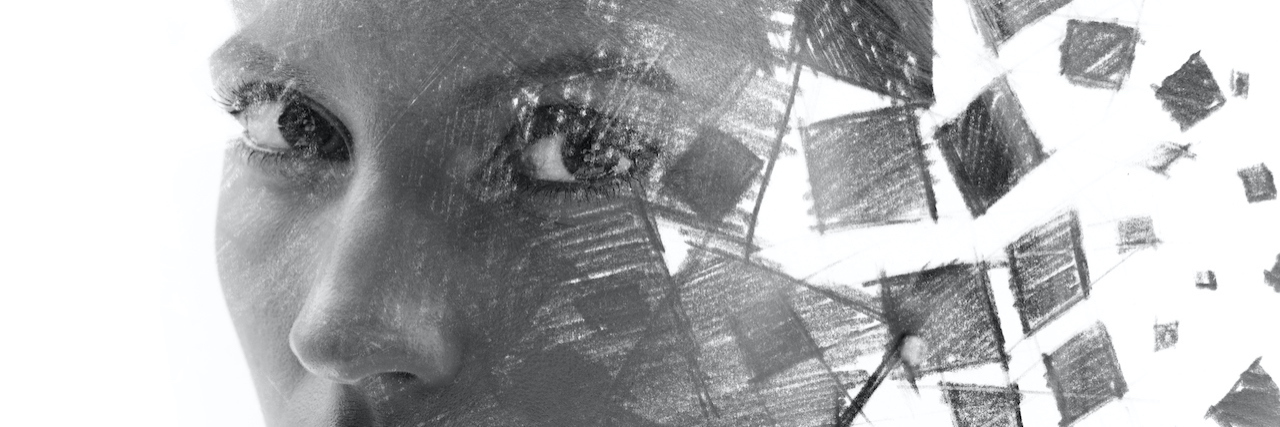The way people look at sexual abuse or assault is so different than how we view most other crimes. If someone is mugged, for example, their experience is generally accepted and supported. This is not the same for abuse where questions arise about how well we’re actually remembering it or could it really have been “that bad.” With this tendency to undermine, it’s no surprise that my own history of childhood abuse is shrouded in doubt. I’m so sure other people won’t believe me that I’ve pretty much convinced myself at times that I must be lying, remembering it wrong, exaggerating, etc. And with these sticky thought patterns, I’ve created a web of self-doubt that is feeling really impossible to clear away.
What typically happens is I think of some memory of being a little girl and being abused, and then a part rises up inside my head, speaking in genuine panic, “What is if this is all made up? What if I’ve been inventing stories because there’s something wrong with my brain? I must be crazy!”
This then shifts straight into: “What if people think I’m lying and can prove it? Everyone (my family, my therapist) will be so angry and disgusted with me that they’ll cut off contact, and I’ll be completely alone!”
And there lies the very core fear — my abused and damaged self will be so totally unlovable that everyone will leave me and I’ll be broken and alone. It’s the worst-case scenario that all other possible bad outcomes lead to.
This part feeds on hearing other survivor’s stories who have been minimized or diminished (and why the confirmation hearings of Brett Kavanaugh were particularly triggering, for example). It thrives on the factors that make my memories feel “unreal”: I didn’t remember much of the abuse until my late 20s and am still remembering new events now or the fact that the memories feel fuzzy in the details sometimes. The logical, educated part of me wants to interject: “But traumatic memories are formed differently in the brain than regular ones — that’s why they feel fake or why you can’t remember what exact color the perpetrator was wearing in one memory. That’s literally how trauma affects the brain!” But the self-doubt is often so much louder than the logic.
It’s a constant battle between the part that’s worried I’m making things up and the part that deep down knows the abuse took place. Because the truth is, I have way more pieces of evidence pointing towards it really happening (panic attacks, flashbacks, chronic suicidality, chronic illness, and the list goes on) then towards all of it being a lie.
At the end of the day, if I’m honest with all of my parts, it’s easier to live in the self-doubt. When I’m doubting my experience, I protect myself from others doubting me (like I’ll do it to myself before anyone else can) and I don’t have to sit with the shame and the terror and the grief— the whole myriad of ways that my life has been impacted (seemingly destroyed) by the horrors that took place. It feels easier to blame myself for lying or fabricating details than to put the blame where it belongs — on another person who chose to hurt my body and mangle my heart.
I do know how lucky I am to have a few people who do believe me and who never dismiss the memories I have. Those people are the piece in all of this that gives me hope. Because maybe they make it OK for me to sometimes travel back and forth to the land of self-doubt — because their feet are firmly planted in reality where they know as a child I was hurt very badly and they won’t ever leave me because of it. Maybe one day I can fully join them there. The panicked self-doubt will subside, and I’ll feel strong enough to accept my past for what it was — acts of abuse that weren’t my fault.
And hopefully, that statement of truth will be completely clear of the immense doubt I currently feel. Because no one should ever question the legitimacy of a victim’s story — especially the victims themselves.
Getty image by Victor_Tongdee


